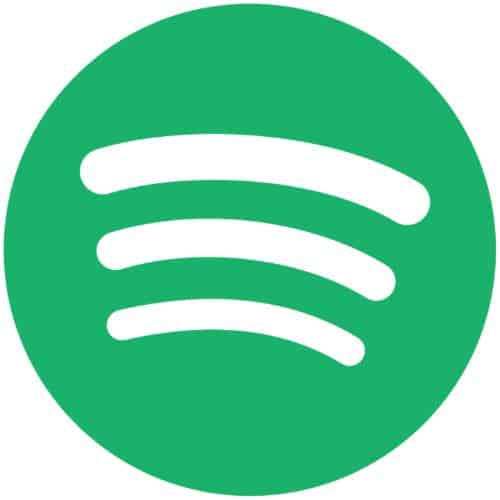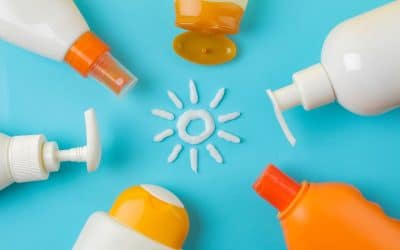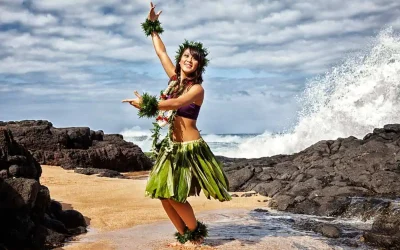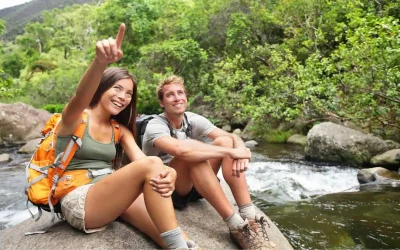Maui Fires Update (Aug. 25, 2023): This Week in Review with Garrett Marrero of Maui Brewing Company
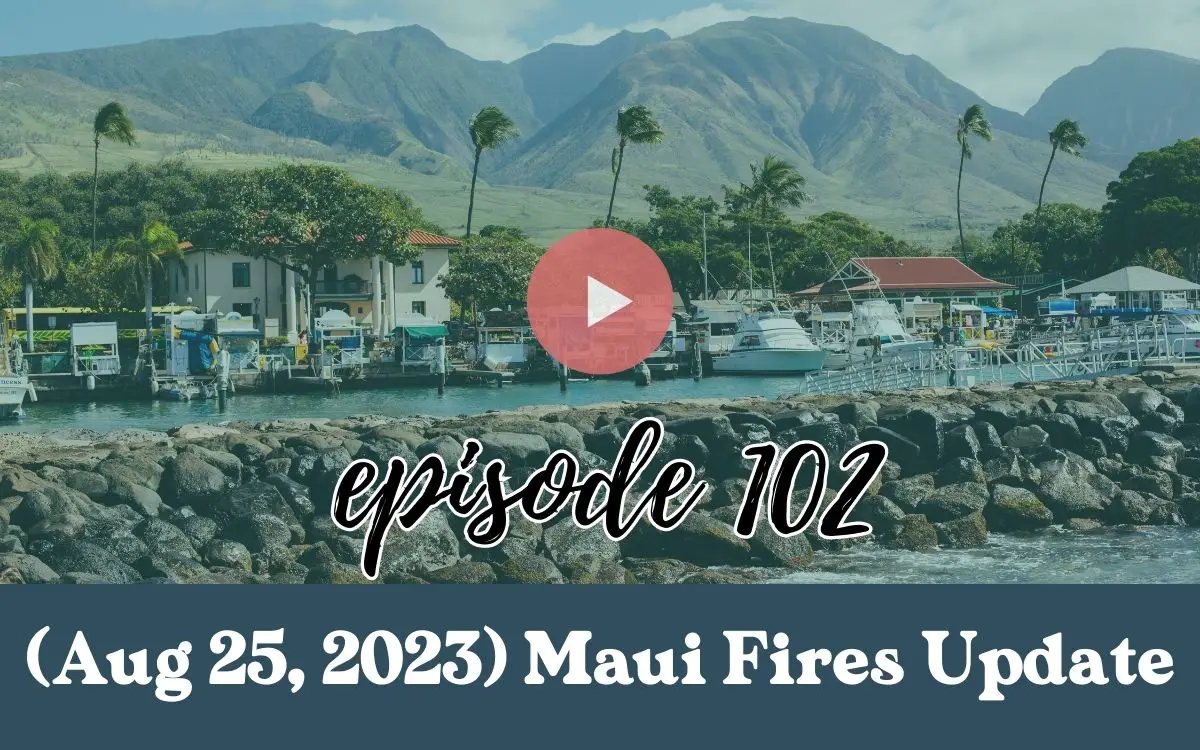
In this weekly series, Garrett Marrero, CEO and co-founder of Maui Brewing Company, will join me to discuss a week-in-review on the recovery efforts on Maui.
Planning a trip to Hawaii? Have any questions? Join our Hawaii’s Best Travel Facebook group here now! It’s the perfect place to ask any questions and to be inspired!
This post may contain affiliate links, meaning that I may earn a commission if you use a link provided.
This post gives general info and isn’t legal or authoritative advice. It helps travelers with tips but can’t replace personal abilities, fitness, experience, or local knowledge. Marine activities have risks; assess conditions and follow local laws.
Maui’s Unique Position
Maui has always been a favorite destination for many. But with the recent fires, there’s been a major shift in the narrative. The focus isn’t just about enticing tourists to visit but ensuring they do so responsibly.
Per Hawaii’s Governor Josh Green, non-essential travel to West Maui is strongly discouraged until at least October 17th.
However, the rest of Maui welcomes visitors. It’s a delicate balance of safeguarding the community and supporting it economically.
Why Responsible Tourism?
Garrett painted a vivid picture of the future implications of the Maui fires. Emphasizing that while we can’t control what’s happened in the past, we can shape the future by not causing further economic harm with misinformed messages about tourism.
The goal? To bring the right kind of visitors to Maui. Those who don’t just come to enjoy the sun and the sea but also wish to contribute positively to the community.
What does this look like? Imagine not just lying on a beach, but also serving at the food bank, volunteering at the Maui Humane Society, or even participating in organized volunteer organizations that build houses for those affected by the fires.
A United Vision
Garrett shared a touching vision of both visitors and locals working side by side to rebuild the community. Just think about the powerful image of visitors and residents, from places as diverse as California to Sweden, swinging hammers together to reconstruct homes.
But remember, if you visit, please keep actions and memories respectful. Refrain from taking insensitive photos in front of burned homes and instead capture moments serving the community.
Wrapping It Up
In times like these, the true spirit of Aloha shines brightest. Let’s come together, be responsible, and show the world how tourism can be a force for good.
To fully grasp the depth of the conversation and the current state of Maui, I highly encourage you to listen to the full episode. Let it inspire and inform your next journey to the islands.
Listen On:
RESOURCES
Maui Strong Resources:
Self-Guided Island Tours
- Episode 70 – How to Volunteer in Hawaii
-
Episode 87 – How to Travel Responsibly to Hawaii
-
Episode 35 – 5 Things to Not Do in Hawaii
Travel Pono (responsibly)
Connect With Us
- Buy Me a Coffee
- Send Us a Message with any questions about Hawaii
- Hawaii’s Best Instagram
- Join our Hawaii’s Best Travel Facebook group here now! It’s the perfect place to ask any questions and to be inspired!
Bumper music, Ukulele and Chill, provided by Coby G (used with permission)
Bumper music, Aloha Friday, provided by Clay D (used with permission)
Spread Aloha
- Leave an honest review on Apple Podcasts
- Follow the Show on Apple Podcasts
Related Posts
Top 10 Best Reef Safe Sunscreens for Traveling to Hawaii
[dssb_sharing_button social_network="pinterest" _builder_version="4.24.3" _module_preset="c7f34e9f-6993-48b8-918d-312481fc55be"...
17 Unique Kauai Cultural Activities and Traditions
[dssb_sharing_button social_network="pinterest" sharing_message="custom_message"...
5 Ways to Travel Responsibly to Hawaii: A Guide to Ethical and Sustainable Tourism
[dssb_sharing_button social_network="pinterest" sharing_message="custom_message"...
Maui Update with Garrett
[00:00:00] Bryan Murphy: Coming up next on Hawaii's Best.
[00:00:02] Garrett Marrero - Maui Brewing: Bring, you know, the right people to Maui who are going to be respectful of the community. You have 99 plus percent of visitors to Maui are good people. They're just fine. You know, they're, they're responsible because they even are just coming and enjoying and contributing dollars.
[00:00:17] Now that shift is come with an intent to serve, you know, come enjoy the beach, you know, do the resort life, go on some tours, experience our waters, experience the Aloha, drink a Maui brewing beer, but then take a day and go do some community service, right? Go serve at the food bank, do Maui Humane Society or otherwise.
[00:00:38] Hawaii's Best: Aloha. Welcome to Hawaii's Best. Here, you'll learn what to know before traveling as we discover Hawaiian culture, local businesses, and the experiences that make Hawaii one of the most incredible places in the world. And now, your host, Brian Murphy.
[00:00:56] Bryan Murphy: Aloha, and welcome to this special Friday edition. We're going to [00:01:00] be talking about Maui updates, and like I mentioned this past Wednesday, each Friday we're going to be joined with Garrett Murrow, the CEO and co founder of Maui Brewing Company.
[00:01:09] We're going to be talking about what, uh, he and his organization are doing, Boots on the Ground, an initiative that you can be a part of and some things that you can, I guess, more so be aware of. So Garrett, thank you so much for coming
[00:01:23] Garrett Marrero - Maui Brewing: on. Yeah, stoked to be here as always. Thanks for having us. Yeah, for
[00:01:26] Bryan Murphy: sure, man.
[00:01:27] How, are you sleeping at all?
[00:01:29] Garrett Marrero - Maui Brewing: I know it doesn't look like it, right? All the back is under... No,
[00:01:33] Bryan Murphy: I wasn't implying that.
[00:01:35] Garrett Marrero - Maui Brewing: A little bit, yeah. I mean, I think better now. I think in the early days, you know, starting just going back to even day one, less so, for sure. But, you know, we were, we were peddled to the metal.
[00:01:47] And so, you know, when you did finally shut your eyes, it was just out, you know, so sure. Glad to be getting a little bit of rest.
[00:01:53] Bryan Murphy: Yeah, I've been following your lives the last couple of weeks, and it felt like right away you guys were just [00:02:00] moving, leading, leading strong. And this has been to be a week in review, and we'll get to that.
[00:02:04] But I think in just to catch everybody up to speed, this last two weeks, a lot has happened. From your end, maybe just give people some perspective on what you and the Maui Brewing Company team have been doing collectively. Anyone else that you want to point out right now, just kind of some of those immediate initiatives and recovery efforts.
[00:02:22] Yeah,
[00:02:22] Garrett Marrero - Maui Brewing: so I mean, I think it's important to note that, you know, of course, all of Maui experienced this disaster together. You know, as much as the west side was the hardest hit, you know, upcountry had a ton of damage. You know, I think north of half a billion dollars in real estate damage. You know, and these are people's homes.
[00:02:39] So, you know, certainly, certainly travesty up there as well. You know, of course Lahaina experienced the worst of it, but, you know, moving into the, what Maui Brewing did, um, you know, also very important to point out that we were not alone in this. There were, you know, countless residents of Maui, many of whom didn't even know each other prior, that just banded together to [00:03:00] do whatever it took to make sure our, our company was taken care of in their time of immediate need.
[00:03:05] As we know, restricted access to the west side. made it difficult. Everybody wanted to help, but not everybody could. So we really encouraged resources so that those with access like ourselves could be the most effective way to get that supply chain enabled. Our team specifically, we jumped into action Wednesday morning after being at the brewery till 1 30 that morning because there was a fire within two miles of the brewery.
[00:03:30] So, once we felt that that was handled, you know, we literally just jumped up, started clearing the cupboards, got all the emergency hurricane water bottles we had, all of that. Humane Society dropped off food for us. I had a friend, Jason Hacker, actually went to pick up food from the Humane Society for the pets on the west side that were displaced.
[00:03:49] Just any supply you can imagine, went central, picked up a gen set to run to our Kaanapali location so we could get the cooler running. We immediately turned into a community kitchen and just started [00:04:00] serving food to stranded guests, employees, displaced residents, anybody who just needed a meal. And that was free, of course, because I think we served like 12, 000 meals in the first, you know, four or five days of the tragedy.
[00:04:11] I mean, I got clearance for the private pilots to land at Kapalua through the state airport director. Wow. You know, I just, it's, it's hard to even think about all the things we did. Cause we weren't like, Oh, you know, here's what would be cool. We were just jumped into action. And it's like on the phone, on the fly, these things are happening.
[00:04:27] Bryan Murphy: It's wild. Yeah. Watching your lives and, and just like, okay, now we can't get through cause we don't have the right, you know, you know, pass or whatever they're trying to do that past. Yeah. Passport thing or whatever. Yeah. And okay, now we can't do that. Just watching your leadership and like, I'm just going to, I'm not going to ask permission.
[00:04:46] I'm just going to like, we just got to get boots on the ground over there in any way possible. So that was just huge. And your Connapolli location was slated. To open, but now it is [00:05:00] open, but it's serving that immediate community is kind of like a refuge, if you will.
[00:05:04] Garrett Marrero - Maui Brewing: Yeah. So essentially we opened the Thursday prior.
[00:05:08] So, so we were only doing lunch service in the beginning and then we were going to be moving into adding breakfast and then adding dinner, you know, as we're very proud to partner with Outrigger, Connapolli on, you know, assuming the old Huey Huey spot in turning that into, um, you know, a gem in the Maui Brewing Company.
[00:05:25] Uh, group of restaurants. So yeah, I think we was at five days of lunch service that we had, uh, things were growing great and then it turned into, you know, the chaos, uh, and it was just, you know, we didn't have power. So it's, you know, keep the coolers closed so we don't lose energy. And then it was just cook all the food and get it out to the community so it doesn't go bad, right?
[00:05:48] We didn't want food perishing, uh, and that's why, you know, that Wednesday I got the Gent set out and Thursday morning we had it up and running so we could power the restaurant. So it was, it was a, a, you know, [00:06:00] huge effort, you know, a heavy lift to get that done. You know, hats off to my Maui Brewing Restaurant Group team, team NBC back at the brewery just keeping things going there.
[00:06:09] And then we had an electrician, Matt Bowes, who just. dropped everything and was like, you know, how do I get over there? Cause I can get this done for you. And I was like, meet me at this spot at this time. We're going to... Okay. When we get down to Keawe, you break off and just go Kaanapali Beach Hotel or Albuquerque Kaanapali.
[00:06:28] And then we've got to go elsewhere and, you know, high five on the way out, you know, that kind of thing. So it was a lot of that in those first few days, especially.
[00:06:35] Bryan Murphy: Yeah. Speaking about your Ohana, your Maui brewing family, how have they been affected? And maybe share a little bit about that. Yeah. Yeah.
[00:06:45] Garrett Marrero - Maui Brewing: Yeah.
[00:06:46] You know, to be honest, I don't know that there's, I'm just getting chills thinking about it. I don't know that there's anybody in Hawaii that won't be affected by this. So, you know, again, we're not alone, but our team, we were fortunate just even, I'm [00:07:00] losing count of the days because of, you know, dates. It's hard to believe that we're, you know, two weeks past already.
[00:07:06] It took us about 10 days, I want to say it was, to track down all of our teammates. And we were fortunate that we found the last one was partially missing because we had heard she had left, but we found, tracked that down, confirmed it, just like I said, about 10 days after the fires. And so we felt good that all of our team was accounted for.
[00:07:26] I know ourselves, we have about 36 that are displaced, that lost their either houses that they owned, condos they owned, or rented. That expands to over 200, when we include our family from the TS restaurant group. And I say family because we're closely related, although not directly. Common ownership, but between the Maui Brewing Restaurant Group family and the TS family, 200 plus have been displaced.
[00:07:51] No lives lost from what we're told so far. We 100% know. I do believe we have everybody accounted for on the TS side as well. We, [00:08:00] some of our fam, of our teammates, we know lost family. You know, I think pretty much everybody in Maui can say we all lost friends, you know, at this point. So I think, you know, just understanding that, I think it's important that the world understands that for sure, because this isn't, this is not an isolated thing.
[00:08:15] I mean, Maui is a small place, but it's a community, you know, and everybody impacts each other somehow.
[00:08:20] Bryan Murphy: Right. Looking back at this week in particular, what have you seen as some of the positives as this past week in the recovery and rebuild efforts? Yeah,
[00:08:29] Garrett Marrero - Maui Brewing: you know, you try to find those glimmers, you know.
[00:08:32] You know, I think definitely some positivity, you know, I was able to reconnect with a friend that we had fallen apart over more than a decade ago. That friendship was immediately healed the moment I pulled up to his mom's house and his house to check on them because I hadn't seen him in forever and I was driving by, I was like, I better go check.
[00:08:49] And then, you know, I learned so much about my dog. You might've seen, heard that story somewhere. I'm normally private on social media and going public. Cammy, my girlfriend, she [00:09:00] had posted a video and people saw Louie and messaged me and said, Hey, that's, that's our old dog. We, you know, we unfortunately, really?
[00:09:08] And so I got a puppy picture of him now, and I know that he's 10 years old instead of 14, like I was told or thought based on when I got him. And, uh, so I know I have more time with my dog. So that's positive. That's cool. You know, we're starting to hear more about government, you know, kind of doing what they're supposed to be doing instead of just kind of standing paralyzed.
[00:09:29] You know, there's a lot more they could be doing, to be honest with you. You know, I am reassured though, because I mean, if you look even just at Early estimates, it was going to be weeks that we were going to be without power at a minimum, likely months, you know, is where the rumor was going around. You know, and I was boots on ground, like I said, starting Wednesday.
[00:09:46] And even that night driving out of Lahaina with, you know, trees still smoldering and fires still blazing in certain areas, you know, it was like driving through a war zone. You know, we already saw the linesmen out there from Hawaiian [00:10:00] Electric and others. Rolling, you know, drilling holes to put new posts up to get power restored.
[00:10:05] And, you know, by Friday powers restored to most areas of West Maui on the north side. Working, working its way south. So I'm reassured too that water, uh, it sounds like is coming back. That is the tests seem to be clean at this point, kind of jury's still out if the unsafe water advisory has been lifted, but I, I see progress, I see progress, but I think we have a long way to go before the community feels like it's something tangible to point to.
[00:10:31] Bryan Murphy: Uh, maybe you can clear this up a little bit. I think it was on Monday. There is video surfacing around, I think 808 Viral and a few other, you know, a large Hawaii media picked it up. It was a C 17 coming in with some temp housing. And then Steve also involved in some of this. Yeah. Temp housing or generating.
[00:10:52] Maybe you can clear up some of that.
[00:10:55] Garrett Marrero - Maui Brewing: Sure. Yeah. So Steve, uh, a good friend, you know, Lonnie K brewing, he jumped [00:11:00] into action right away. You know, he's got a really interesting past and, and, and the things he's accomplished in his career. Uh, and he's a adventure seeker Waterman has a lot of connections to these types of Groups that have, you know, like, Hey, we've got portable housing.
[00:11:14] We've got generators. We've got, we can pull water out of the air. Like, you know, cool stuff like that. And so he was texting and calling me even while I was driving missions, when I did have reception. And he's like, Hey, what do you think about this? I'm like, yeah, that looks cool. Go for it. You know, and can I use your address to ship a water generator?
[00:11:30] Cause I've got three secured and we can get clean water out to the communities. I just need your, I need to send it to the brewery. Cool. I'm like, cool. So he was critical in getting some of those resources deployed and him and his friend, Al worked with the family living center on Maui to get a project going right away and it was supported by Contenest, uh, which is essentially these They look like containers, but they're flat and you literally with a forklift just lift the top piece and then the sides fold out and you [00:12:00] have a 200 square foot house, you know, room, I should say.
[00:12:03] And it's just really a bed, a table, and I think a desk, but it's no bathroom and no shower, no kitchen facilities inside, but immediate shelter. And I think they got them in the other night on that C 17. Uh, which was, uh, donated flight, uh, from NATO actually. So I think that plane came from Hungary and they had eight of them standing.
[00:12:24] And I don't know how many more they put up the next day, but probably the rest of the 22, I think that arrived. So that's going to be a micro community that's supported by a donated solar grid plus battery. These are the types of programs it shows you that, you know, we as private industry have been able to rally together.
[00:12:44] to start projects like this. This is to your point, you know, we're just going to do this. We're not asking permission because this is clearly needed.
[00:12:52] Bryan Murphy: So, so looking into now and this coming week, those listening, a lot of them are on the continental U S so they're not [00:13:00] on island and looking for ways to help.
[00:13:01] What are some of the immediate needs? Some of the things I saw, maybe you can speak into it and expand on the list where air filters, solar, I try not to tear up here, but solar lights for crosses was another. Uh, maybe you could expand on that list a little bit. Yeah,
[00:13:18] Garrett Marrero - Maui Brewing: you know, I think there's been a lot of messages out there about, you know, this is still so recent and there's a need to grieve and to honor the, the, uh, you know, our missing and our confirmed lost.
[00:13:30] So there was a. program, I think near Lahaina Luna, they were putting up crosses to represent everyone lost and they wanted to get some solar lights, you know, kind of like the garden lights to point up and illuminate these, these crosses that were being hung, you know, while that's a noble and beautiful memory.
[00:13:48] So I do, you know, that same video, the same gentleman asked for air purifiers, which make a lot of sense so that there's a. Cleaning of the air because all of these toxic chemicals that went up in [00:14:00] smoke, you know, we're atomized. It's the air you have all of the plastics and everything that melted and all of the Insulation that just disintegrated all of that's in the soil And when the winds kick up that gets going through the houses and a ton of ash that blew into these homes, right?
[00:14:16] So, you know the air purifiers are being requested so that they can clean the air inside their homes But those would be, you know, a very, a big need at the moment, you know, I think it's important to remember this isn't pandemic, right? This is a different, different pandemic. This is a isolated at the moment, and I would argue has the potential to be worse for us from a economic standpoint, certainly worse for us from a community safety standpoint.
[00:14:42] But the barges are still running, the ships are still coming in from the mainland. You know, there's no shortage of goods. In Maui anymore. Like I said, private industry and local population jumped up and made sure the West Maui had what it needed right away to the point that within the first five days, people were [00:15:00] turning away supplies largely because they had too much water, too much diapers, too much everything.
[00:15:04] So I think. You know why I bring that up is that the best way instead of, you know, our mainland families and people around the world that want to support the best way is to send cash, you know, open up the wallet and instead of buy some goods and then spend money on shipping, just donate to local 501 C3 charities that are going to be able to donate this cash directly to the community in the form of the supplies that are needed, right?
[00:15:29] Let's stimulate the local economy by spending the money locally. But then also, you know, you're leveraging your dollar by not spending it on shipping either. So, you know, we do have supplies. The rest of Maui is largely unimpacted. So, not only are we open for tourism, but we could benefit from just cash donations that are starting to switch to the, how do we get people in homes right away?
[00:15:53] You know, I'm working on a couple of tiny home type projects that are kind of small communities. You know, both in [00:16:00] direct tiny home community, as well as these tiny homes used as, you know, as we know them, they call them ADUs and permitting, but Ohana units that could then be on a building plot that you later build a home on.
[00:16:12] So, you know, but project like that's 10, 12 million bucks for a hundred homes, something that we, that's actively what I want to do. And I think we can achieve, but we need the 501c3 charitable. In order to fund projects like that.
[00:16:27] Bryan Murphy: Yeah, well, uh, one of the things you're doing, if you could speak on it a little bit.
[00:16:31] And for those listening, this is a little bit longer of an update. It'll be quicker, I promise. But I just wanted to kind of catch, catch everybody up to, up to speed. But one of the initiatives you're starting with is somewhere in the neighborhood of like over 600 other breweries across the States. Yeah.
[00:16:47] Maybe talk about that a little bit.
[00:16:48] Garrett Marrero - Maui Brewing: You bet. So, uh, last count, we're up to over 700 now. Oh, wow. And that is worldwide. So we have breweries as well. Oh. I want to say the UK, Canada. I think [00:17:00] Sweden and Australia at this point, I think maybe even Japan. I know there are some, some better, uh, charity events in Japan that we're part of as well.
[00:17:07] So we thank everybody for that participation, but the Cocoa Beer Project is similar to Sierra Nevada's resilience program back in 2018 with the fires that they had in California. Sierra Nevada reached out to us like the Friday after the fires and said, Hey, our whole team's here for you, whatever you need, we'd love to be a part of it.
[00:17:26] And you know, we can guide you with all the things we learned that we did right and we did wrong during that project. So the Kukua beer project was born like the day after the fires and our team went to work on that. And 700 at this point and growing breweries around the world will be brewing. A similar beer.
[00:17:42] We have a base recipe, but of course it's open to interpretation. We want them to do what they do best and showcase that in the beer. Uh, no, we'll be packaging in cans and having draft, but the rest of the breweries, the other 700 or so will be doing draft releases and donating a portion of their [00:18:00] revenue from that beer.
[00:18:01] To the 501c3s that we suggest, you know, we, we hope that that will raise between two and three million dollars and that's, that's my goal for that project. That's awesome.
[00:18:12] Bryan Murphy: Uh, maybe this kind of be where we'll kind of end and frame our conversation about, uh, tourism. You mentioned tourism specifically.
[00:18:19] We're talking a little bit about responsible tourism and I think it was Josh Green mentioned non essential travel to West Maui is restricted until at least October 17th, but the rest of Maui. Is open. What does that mean? Because there's a, there is a heavy, heavy push right away. Like, don't come get off.
[00:18:38] Don't come to to Maui. Don't come to Hawaii at all. You know? But now it seems like a lot of people have been changing that to some of those people who are very vocal and saying not to come. Now they're saying, well the rest 'em now is open. Yeah. But from the get go, you were saying we need responsible tourism.
[00:18:54] 'cause you're seeing, you're seeing the next. Month, weeks down the road at how [00:19:00] it's going to impact. Maybe you can expand on that a little bit.
[00:19:03] Garrett Marrero - Maui Brewing: Sure. I think it's important to know that, you know, this is not a, it's not because of business because of for us, right. This we're talking about the community and, you know, we cannot control what happened with the fires.
[00:19:16] That is the past. We can control the future in a way that we don't create an even further economic disaster out of this fire by irresponsible messaging about tourism. I want to see somewhere around four out of every 5, uh, in this, in Maui comes from tourism in some form, right? Some connection to it, whether it be FMB or otherwise.
[00:19:37] I can appreciate the knee jerk emotional reaction to don't come here. However, you know, I think again, being, you know, leadership means in the face of adversity, you know, having foresight and thinking about, you know, what your, how your actions impact the future. And, you know, very quickly we could see that.
[00:19:58] You know, 14, 000 [00:20:00] people a day evacuating from Maui and on the tourism side meant there were going to be no tourists in order to surf. And that meant jobs were already being lost in South Maui week one, boats were letting everybody off because their bookings canceled out past Christmas. You know, so that economic disaster.
[00:20:19] It's something we can prevent by promoting what I've talked about for the better part of a decade is responsible tourism. You know, where bring, you know, the right people to Maui who are going to be respectful of the community. You have 99 plus percent of visitors to Maui are good people. They're just fine.
[00:20:35] You know, they're, they're responsible because they even are just coming and enjoying and contributing dollars. Now that shift is come with an intent to serve, you know, come enjoy the beach, you know, do the resort life, go on some tours, experience our waters, experience the Aloha, drink a Maui brewing beer, but then take a day and go do some community service, right?
[00:20:55] Go serve at the food bank, do, uh, Maui Humane Society or otherwise. So [00:21:00] I think it's very important that we send that message and I do applaud those who have retracted the don't come here messaging because I think. What are we going to rebuild if we have nothing to come back to? And if we don't preserve the economy of Maui in some form, which we know it's going to be hurt no matter what, losing West Side, Lahaina specific, let's minimize that impact by promoting responsible tourism to the rest of Maui.
[00:21:25] And I don't know about you, but, you know, I look forward to working in organized volunteer organizations, building houses for our community when that time comes and, you know, looking to my left and seeing my friends and neighbors and looking to my right and seeing visitors from California, Florida, Sweden, Japan, wherever, swinging the same hammers to, to build these homes, to put our residents back.
[00:21:48] And I know that the vast majority of the world would love to come do that type of tourism. So I think that's the right message. And restricted access, it's not restricted anymore. It's discouraged [00:22:00] other than in, it's a non essential travel is discouraged to West Maui. I do second that with do not come to West Maui and take pictures in front of burned homes for selfie purposes.
[00:22:11] Just because you were there, the world doesn't need to see that. You know, there's enough horror there. So, you know, if you do come. The pictures we want to see are you serving our community in some fashion.
[00:22:20] Bryan Murphy: That's beautiful. I think that's kind of what we're wrap right there. Just that image of visitors, locals, Kanaka all together, just swinging hammer and rebuilding Maui.
[00:22:32] That's a beautiful image. Garrett, thank you so much for your time today. Absolutely. Always nice to see my friend. Absolutely. And again, thank you so much for listening to this episode and be sure to follow because coming up on Wednesday this coming week, we have Patrick Parker, who is a local Maui artist.
[00:22:49] And we're going to be talking about the local Lahaina art community and ways that you can support them during this time. So until then, be well. Aloha. Mahalo[00:23:00]
[00:23:00] Garrett Marrero - Maui Brewing: for listening to this episode of Hawaii's Best. To stay up to date on future episodes, please subscribe and visit us at Hawaii's Best. Best travel dot com.


